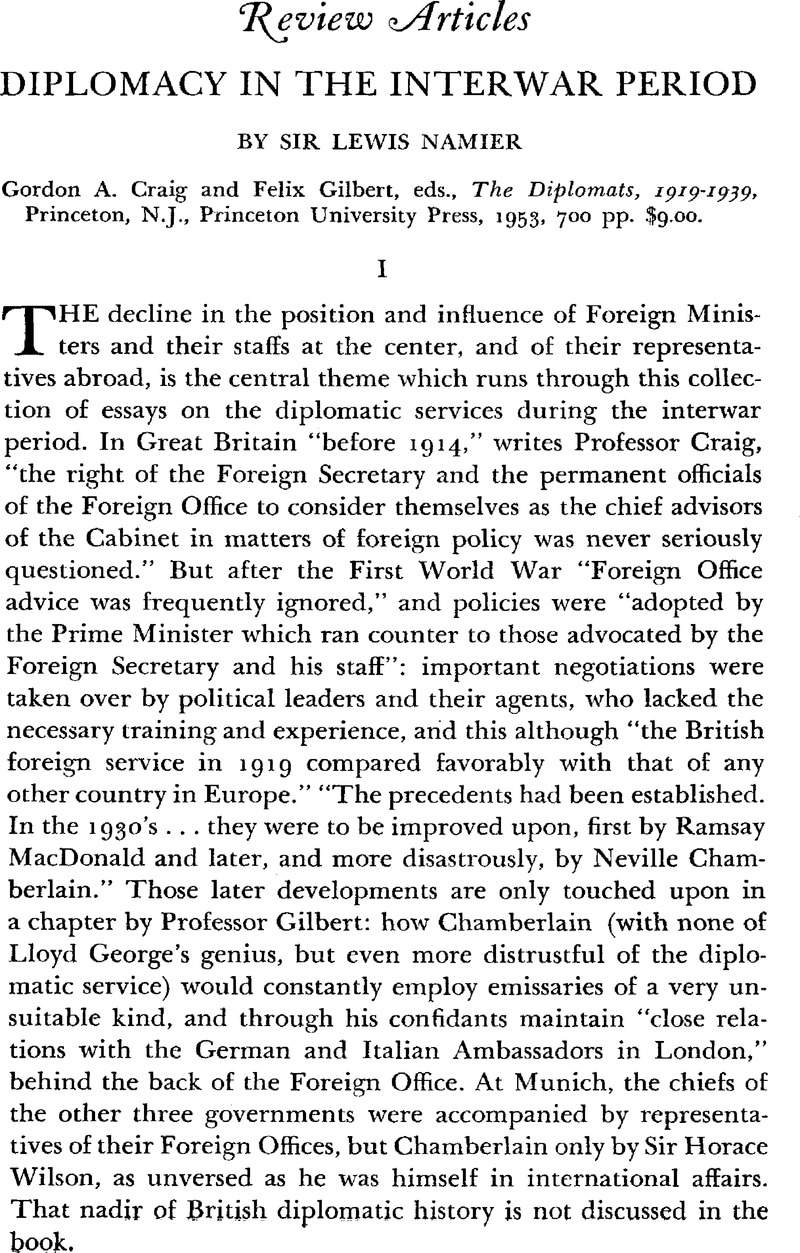No CrossRef data available.
Article contents
Diplomacy in the Interwar Period
Published online by Cambridge University Press: 18 July 2011
Abstract

- Type
- Review Articles
- Information
- Copyright
- Copyright © Trustees of Princeton University 1954
References
1 Craig here quotes from Papen's Memoirs. But Papen further relates how in 1936 he was saddled with a Counsellor, von Stein, “an ardent Nazi” who negotiated on his own with the Austrian Nazis and reported direct to the Wilhelmstrasse. Papen refers in particular to one memorandum: “Its contents have only come to my notice since the war, as part of the collection of German Foreign Office documents published by the Stationery Office in London.” A fine alibi—but in fact there is among the German documents a covering note from Papen forwarding that memorandum and commending it as valuable support for a démarche of his own. Given due care and caution, German balloons can usually be pricked.
2 Brussels, 1858–67.
3 Professor Craig touches upon the activities of that egregious group in Great Britain which, in the first quarter of this century, went by the name of Union of Democratic Control, and seems to overrate its importance. As finale to its activities he might have quoted the démarche undertaken on July 29, 1939, by one of its last survivors, Charles Roden Buxton, who told the Counsellor of the German Embassy that public discussion of how to preserve peace could “no longer achieve its purpose,” and that it was “necessary to revert to a sort of secret diplomacy,” and seek a way out of the difficulties “by conversations from which the public was totally excluded.” In short, all that was left of the credo of the UDC was a pathetically naïve belief in their own fitness to conduct diplomatic negotiations. (See Documents and Materials Relating to the Eve of the Second World War, published by the Ministry of Foreign Affairs of the USSR, Moscow, 1948, 11, Dirksen Papers, pp. 106–12.)
4 Cf. also Rurabold's despatch of July 3, 1930: ”It is an unattractive feature of the German character to display little gratitude for favors received, but when the receipt of favors is followed up by fresh demands, there are grounds for feeling impatient.”




